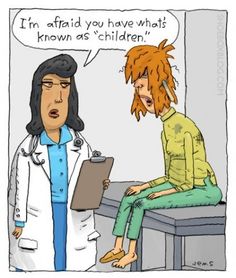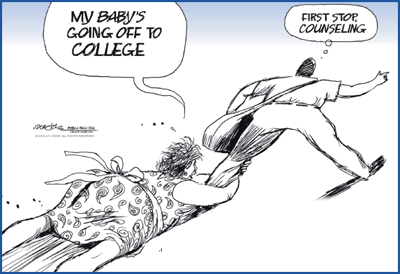Ever since my son, Morgan, was a baby I’ve been obsessed about his health. I have a daughter five years older than Morgan, whose health I’ve also been concerned about at times, but never to the level of obsession that I’ve felt with Morgan. What is it about his health that creates these obsessive thoughts and behavior patterns in me?
If I analyze it (which I’m prone to do to try to find some missing tidbit of information that could help him!), I think that when Morgan got Respiratory Synctial Virus at 3 weeks old, I saw how much his health relied upon me ensuring that he got round the clock treatments of Albuterol and that he always had the oxygen canulas in his nose, even while I was breastfeeding him. This went on for 3 weeks, and it started my obsessive fear that if I did something wrong, my son’s health was going to suffer.
Once he was diagnosed with a peanut allergy at 9 months old, the health ante was raised. Now I was responsible for ensuring that he didn’t have any life threatening reactions to peanuts. I got a long list of items from our allergist that I needed to do to ensure that a reaction never occurred – read every label of every food every time he ate it, cook only safe foods in the house, make sure he didn’t touch anything he was allergic to…You get the point! You’ve been there too! If I wasn’t already tending toward obsessive/compulsive behavior, I’d have been put on the path with the doctor’s directions! Adding asthma to the mix in his toddler years once again upped the ante, and then adding more foods to his long list of severe allergies – tree nuts, sesame, fish and shellfish – raised my obsessive behaviors to a fever pitch.
Through the years, I’ve met so many mothers whose own health has deteriorated as they attempt to take care of a child with severe health needs. We parents of children with food allergies seem to suffer the most of any parents I’ve met. I think it’s because so much is riding on our ability to create a safe environment for our children at home, at school, with family and friends, at playdates – the list is endless. And research has shown that my anxiety about any of these issues can play out in my child’s emotional balance. Which means I need to be concerned about all of these life issues, but not anxious, fearful or worried! And that is so difficult.
If you read my son’s most recent blog post about his first quarter of college, you know that even with his excellent grades and heavy workload, he came home after having been sick throughout the previous 10 weeks to be diagnosed with mononucleosis. He was thankfully able to rest during the school break, which was 6 weeks long for him, and begin to get well. When he left to go back to college, he was by no means 100%. He’s still in need of an abundance of sleep, and just not fully energetic. This sets off an obsession of worry for me that he will overdo it, stay up late, volunteer for too many activities, and have another college quarter full of sicknesses. Or maybe he won’t be healthy enough to go to school at all! I’ve practically made myself sick with all my thoughts and scenarios.
I’ve heard men say that it’s a “Mom thing” to worry about our children and their health and safety. But what are we doing to our own health and peace of mind? Is it necessary to worry? Or would concern suffice?
I have an immune disorder – a mast cell proliferation in my gut – that definitely requires that I focus on my health. The ultimate fear for me with Morgan’s food allergies has been that I’ll do something wrong – serve him a food that will cause a fatal severe reaction, or that someone else will – and that has motivated this obsession with perfection in the area of food allergies. After all, our allergist has told us what he needs to be safe! I have all the data to show that I need to be this worried. Yet, me worrying about his health has taken away from my ability to focus on my own.

How can we parents of children with food allergies find a balance of safety without obsessing over our children? If you have an illness that also needs to be managed, how is that possible? I have a few ideas from what has worked for me –
1) I find it helpful to remember that there is a God and it’s not me. I can teach my son to always carry his EpiPen, to train others, to eat safely, and to take care of his health – that’s my footwork as a good parent. Then I get to turn the rest over to God or to whatever benevolent spirit you might believe in.
2) God has no grandchildren. Very similar to #1 above, but this reminds me that I’m not the go-between for everything that goes on in my children’s lives. My children get to have their own lessons in life, many of which have nothing to do with me. It was vitally necessary to teach Morgan how to advocate for himself, because I wasn’t going to be with him always, but it’s up to him to utilize that training now that he’s almost 19 years old!
3) I am responsible for taking care of my own health. As you hear on every airplane flight, “Put your own oxygen mask on first, and then assist your child.” In the book by Dr. Joe Dispenza called “You Are the Placebo”, he states, “You must observe and pay attention to those emotions that you’ve memorized and that you live by on a daily basis, and decide if living by those emotions over and over again is loving to you.” What better way to demonstrate to my children, who both have health issues, how to take care of themselves than for them to watch me on a daily basis take my medicines, watch what I eat, get enough sleep, and turn over those things outside of my purview.
4) I’ve ceased to expect perfection – from my son or from myself. Let’s face it, accidents happen. I’ve purchased foods from the grocery store that had an allergen in them (the box had a ‘may contain’ statement). I certainly didn’t mean to do it, and thankfully only a small reaction occurred. Another time, my son caught the mistake before he ate the food. This was a great learning lesson for everyone.
5) Forgive myself and others. Tying onto #4 above, I’m not going to be perfect, and when I’m not, I can apologize and then work on forgiving myself. Sometimes with other people’s lack of understanding of food allergies, I’ve had to work harder at forgiving them.
6) Practice the Serenity Prayer which is “God, grant me the Serenity to accept the things I cannot change; Courage to change the things I can; and the Wisdom to know the difference.” There are a lot of things I can and should do for my son’s health. Worrying about him isn’t about acceptance and it isn’t about courage either. Worrying is wasted energy. I look for what I can do, and do that. Now that he’s in college, I have far fewer things to be courageous to do for Morgan. The most courageous thing is to hold my tongue, and allow him to learn what he needs to learn in life at as young of an age as possible.
7) Talk with someone else. I have friends and mentors who have helped me through the years by listening to me recount situations, obsessions and worries. They listen, and by listening the burden is shared. Suddenly it doesn’t seem as big of a deal as it did when it was rolling around in my head. And many times I find alternative ways to look at the health issue that seemed insurmountable.
8) Stay in the here and now. Many times my obsessions are spawned out of fear of the future. I want to control what’s going to happen, and I want to make sure that my son is always safe. We did everything right to manage food allergies in college, and didn’t know that mono would be the tripping point. This shows me that I just need to do what’s in front of me to do, and the future will unfold as God sees fit.
9) Try to find the humor. If I’m not laughing at myself, I’m sure someone else is! After all, flapping my mother-bird wings is a sight to behold!
So, here’s to good health for all of us parents! Here’s to proper concern, and less obsessive thinking. I, for one, need to remember that daily!
